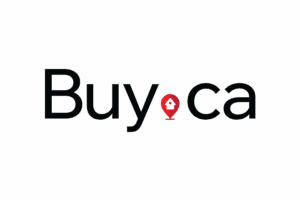In a time where home prices and mortgage loans are at an all time high, Canadians need to strategically consider what rate best suits their needs and what the rate forecast will look like in the years to come. You can save thousands of dollars on your mortgage by shopping around and comparing multiple offers from lenders.
Why is the Bank of Canada announcing a rate increase today?
The main role of the Bank of Canada is to protect the health of the overall economy, and this includes occasionally changing interest rates as one of their strategic levers. When the economy is doing well, we spend more and take on more debt which is good for businesses. When demand for goods and services, including housing, exceeds the available supply, then prices tend to rise and this results in inflation (which, today, is at record high levels in recent history)
By choosing to increase rates, the Bank of Canada discourages consumers from taking on more debt, as the higher servicing costs impact Canadians’ cash flow. When people put off or reduce their purchases, businesses could lower prices to encourage buyers; which in turn helps to reduce inflation.
How does the rate hike impact me if I’m looking to buy a home?
If you’re a first-time home buyer:
For those who are just starting out in the buying process, you should be aware of the current mortgage rates offered by lenders. This can help you understand what your mortgage payments and overall budget would look like. Mortgage rates can change often, and you’ll want to get an idea of what’s available for fixed vs. variable or different term lengths. If you haven’t yet gotten pre-approved online, signing up with Perch is a great first step.
For buyers who have already been pre-approved, now is a good time to check back in with your mortgage advisor. If you’ve found a mortgage offer that you like, you can discuss if it makes sense to lock it in.
If you’re buying and already own property:
Existing homeowners may have the option to port their mortgage if their current rate is more favorable than what is available, along with the added benefit of saving on mortgage penalties.
But what happens if you don’t have that option? Let’s say you’re an existing homeowner who is unable to port a lower rate mortgage to a new property. In addition to paying a penalty for breaking your mortgage early, you’ll also have to re-qualify with a new lender and negotiate a new rate for the purchase. When negotiating your mortgage terms with a lender or broker, it’s important to consider whether the new mortgage is portable, and any other pre-payment limitations, as this can affect your options to break or renew early in the future.
Should I rush to submit a mortgage application if I have an accepted purchase offer?
In general, you’ll want to submit a mortgage application as soon as you have an accepted offer to ensure the lender has enough time to review your file before closing. This is particularly relevant for those of you with closing dates that are less than 30 days away.
The benefit in locking in a mortgage rate (typically up to 120 days) is that you can have protection from rising rates while also being protected from falling rates (since lenders will honour the lower rate if they change prior to your closing date).
In the context of a Bank of Canada rate hike, however, the mortgage rates you see have already taken that into account. By the time an announcement has been made, those rates have already factored in the expected rate change.
How do rate increases affect me if I have a mortgage?
Only homeowners with a variable rate mortgage are directly impacted when the Bank of Canada increases its lending rates (which in turn influences banks to increase their Prime Rate). That’s because with a variable rate, you lock in a spread (example: Prime – 1.00%) and not an actual rate. Although variable rates have been historically lower than fixed, a borrower needs to ensure they are able to cover higher payments if rates rise.
Homeowners also have the option to renew their mortgage into a fixed or variable rate at or before your renewal date. This may involve breaking your mortgage term prior to renewal and paying a penalty, however some cases can still save hundreds or thousands in interest costs.
What does the mortgage rate forecast in Canada look like for the rest of 2022?
The Bank of Canada usually avoids large rate increases in one period unless there are mitigating circumstances, such as high inflation. The forecast for 2022 is that there will be between 4 to 6 increases and each increase is estimated to be around 0.25% at a time. This means the increase in your mortgage rate would be an increase of 1.00-1.50%.
Our prediction: We’ll see at least 3 Bank of Canada rate increases this year, but don’t believe they will raise rates as aggressively as initially planned. Fixed rates mortgages have already come up quite a bit in 2022, and with a negative global political climate we don’t anticipate much more room to grow by the end of the year.
 Jessica
Jessica





